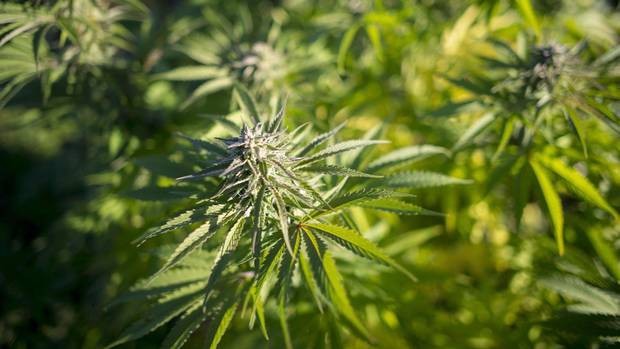Panel provides guidelines for safe cannabis use

How do you minimize the health impacts of marijuana in a country where it is legal to smoke – or otherwise consume – the drug?
As Canada approaches full legalization on July 1, 2018, a blue-ribbon panel of experts has provided an evidence-based answer to that thorny question and, on Friday, they will release a set of “lower-risk cannabis-use guidelines.”
The research, published in the American Journal of Public Health, is essentially a list of practical tips for current and potential marijuana smokers.
The guidelines begin with the statement that the health risks of cannabis – including impairment, pulmonary damage and neurological impacts – are most easily avoided by abstaining.
“It’s a bit of a mandatory, prophylactic statement, but it’s true,” said Dr. Benedikt Fischer, senior scientist at the Institute for Mental Health Policy Research at the Centre for Addiction and Mental Health in Toronto.
“Cannabis is not benign and people should not assume that it’s perfectly safe because it’s being legalized,” he said.
“But, ultimately, legalization should make it easier for cannabis users to make smart choices,” Dr. Fischer added.
About 15 per cent of Canadians – including roughly 30 per cent of adolescents and young adults – report using cannabis in the past year, according to surveys.
The guidelines are aimed principally at helping them reduce potential health risks.
The recommended measures include:
Delay using cannabis until adulthood: The researchers say that there is strong evidence that cannabis can affect the developing brain, so it is best delay use until after age 18, or even 21. The earlier someone starts smoking marijuana, the greater the potential harms, according to the research;
Avoid smoking cannabis products: Much of the harm comes from combustion, so users should favour safer methods such as vaping, bongs, edibles and drinkables. They should also avoid mixing cannabis with tobacco;
If you smoke cannabis, avoid harmful practices such as deep inhalation and breath-holding, which intensify the absorption of both psychoactive components and hazardous by-products;
Choose lower-risk cannabis: The researchers say high-potency products (meaning high THC content) such as “skunk” and “wax dabs” are best avoided;
Limit and reduce use: The greater the intensity and frequency of cannabis consumption, the higher the health risks. If you’re going to smoke cannabis, the guidelines recommend doing it occasionally, such as on weekends;
Don’t use synthetic cannabinoids: Products such as K2 and Spice are much more powerful and the effects are more severe than organic cannabis, so they should be avoided;
Don’t drive or operate heavy machinery: The guidelines recommended that users not drive for at least six hours after smoking or otherwise consuming cannabis and be especially cautious if they combine marijuana and alcohol;
Avoid cannabis altogether if you have a family history of mental illness (particularly psychosis) or if pregnant.
Dr. Fischer, who is also lead author of the guidelines, said it’s up to individuals to decide if and how they use cannabis, but it’s up to government and public-health officials to facilitate making smart choices.
For example, he said that good labelling is essential so users can know the THC content of products.
The guidelines stress that education is also required if people are going to be expected to make reasoned choices.
The dangers of driving while stoned should be heavily publicized, as was done with drunk driving.
While many other drugs, both legal and illicit – from alcohol to opioids – pose more health risks than cannabis, the guidelines stress that is not a reason for the risks to be ignored, and that harm reduction measures need to be embraced.
“Cannabis use carries with it real health risks and mitigating those risks for Canadians – particularly young Canadians – must be the first priority,” said Dr. Laurent Marcoux, president-elect of the Canadian Medical Association.
The guidelines are endorsed by a number of health groups, including the Canadian Medical Association, the Canadian Public Health Association and the Canadian Centre on Substance Use.
420 Intel is Your Source for Marijuana News
420 Intel Canada is your leading news source for the Canadian cannabis industry. Get the latest updates on Canadian cannabis stocks and developments on how Canada continues to be a major player in the worldwide recreational and medical cannabis industry.
420 Intel Canada is the Canadian Industry news outlet that will keep you updated on how these Canadian developments in recreational and medical marijuana will impact the country and the world. Our commitment is to bring you the most important cannabis news stories from across Canada every day of the week.
Marijuana industry news is a constant endeavor with new developments each day. For marijuana news across the True North, 420 Intel Canada promises to bring you quality, Canadian, cannabis industry news.
You can get 420 Intel news delivered directly to your inbox by signing up for our daily marijuana news, ensuring you’re always kept up to date on the ever-changing cannabis industry. To stay even better informed about marijuana legalization news follow us on Twitter, Facebook and LinkedIn.




